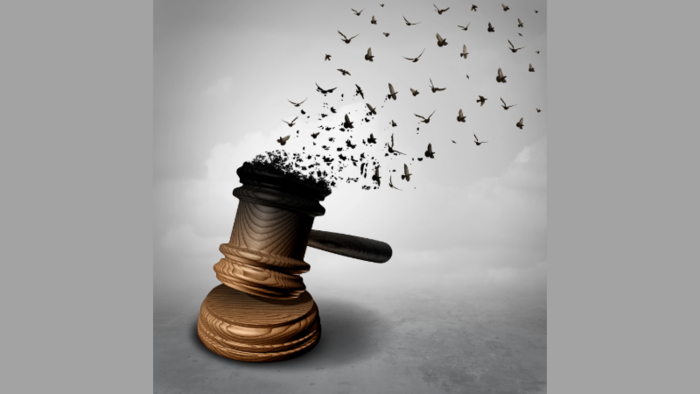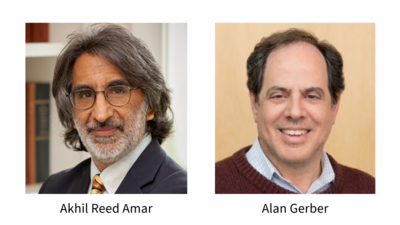Akhil Reed Amar on Presidential Pardons: Strength, Mercy, and the Risk of Misuse

The U.S. president is not a king, but presidents do possess some king-like powers. Including the power to unilaterally pardon anyone for committing federal crimes.
The Institution for Social and Policy Studies (ISPS) recently invited Akhil Reed Amar, Sterling Professor of Law and Political Science, to discuss the presidential pardon power, its origins, and how it has been used and possibly abused.
“The pardon power is quite sweeping, but it has some limits, explicitly and implicitly,” Amar said. “It’s a power vested in the president and the president alone.”
Amar said the pardon power is a way to correct injustices, to show mercy, and to address situations where the law might have been applied too harshly. But, he added, the pardon power also contains the potential for misuse, through rewarding allies or punishing enemies.
“It’s a power that’s capable of great abuse, even though you might think it’s just a power of doing nothing at all,” Amar said. “But if you’re encouraging people to commit crimes, your followers, and then giving them a get-out-of-jail-free card at the end of the day, oh, that’s not so good.”
In a conversation with Alan Gerber, ISPS director and Sterling Professor of Political Science, Amar outlined the scope of the presidential pardon power as described in the U.S. Constitution. For example, the power applies only to federal — not state — offenses and does not apply to civil penalties such as monetary fines and deportation.
In addition, he said a president cannot spare a cabinet officer or a judge from being impeached by the U.S. House of Representatives and convicted in the Senate. The power can only apply to past crimes, not future ones. And presidents cannot, he believes, pardon themselves.
“A president, in my view, and in the views of most of us, can’t pardon himself,” Amar said of leading legal scholars. “No one can be a judge in his or her own case.”
Amar compared the U.S. pardon power to its origins with the British monarch prior to the American Revolution, noting the king wielded far more sweeping power not limited, for example, by a split between federal and state laws. And he cited Alexander Hamilton’s rationale for defusing an insurrection or rebellion with a well-timed offer of a pardon.
He explained how George Washington used the pardon power during the Whiskey Rebellion to offer clemency to rebels who laid down their arms in the face of overwhelming force, showing a combination of strength and mercy to restore tranquility among the populace. In addition, Amar cited Thomas Jefferson, who pardoned those convicted under the Sedition Act of 1798, a law he considered unconstitutional. And he discussed how Andrew Johnson’s pardons of Confederate soldiers and officials after the Civil War and Jimmy Carter’s pardoning of draft dodgers were intended to help knit the country back together.

“We greatly appreciate this opportunity to tap Akhil’s vast expertise on this subject,” Gerber said. “The pardon power is a significant grant of executive authority. It’s important to step back and understand the constitutional rationale for granting this authority, what are its intended uses, and what might constitute abuse of this sweeping power.”
Addressing actions by our most recent presidents, Amar criticized Joe Biden’s pardons of his family members — a conflict of interest enacted without normal legal review — and Donald Trump’s pardons of the January 6 insurrectionists — for undermining the rule of law by sparing people who committed violent acts and for encouraging the behavior in the first place.
Amar contrasted Trump’s pardons of those who attacked law enforcement and stormed the Capitol with Washington’s pardons of those who participated in the Whiskey Rebellion.
“Washington wasn’t in cahoots with them,” he said. “It’s a totally different situation.”
He emphasized the importance of publicity, elections, and impeachment to check improper uses of the pardon power.
Transparency is crucial, Amar said. The more the public knows about how and why pardons are granted, the better they can hold their leaders accountable.
View the full conversation on YouTube.
For more on Akhil Reed Amar’s views on the pardon power, listen to the “Unpardonable” episode of his podcast, Amarica’s Constitution.